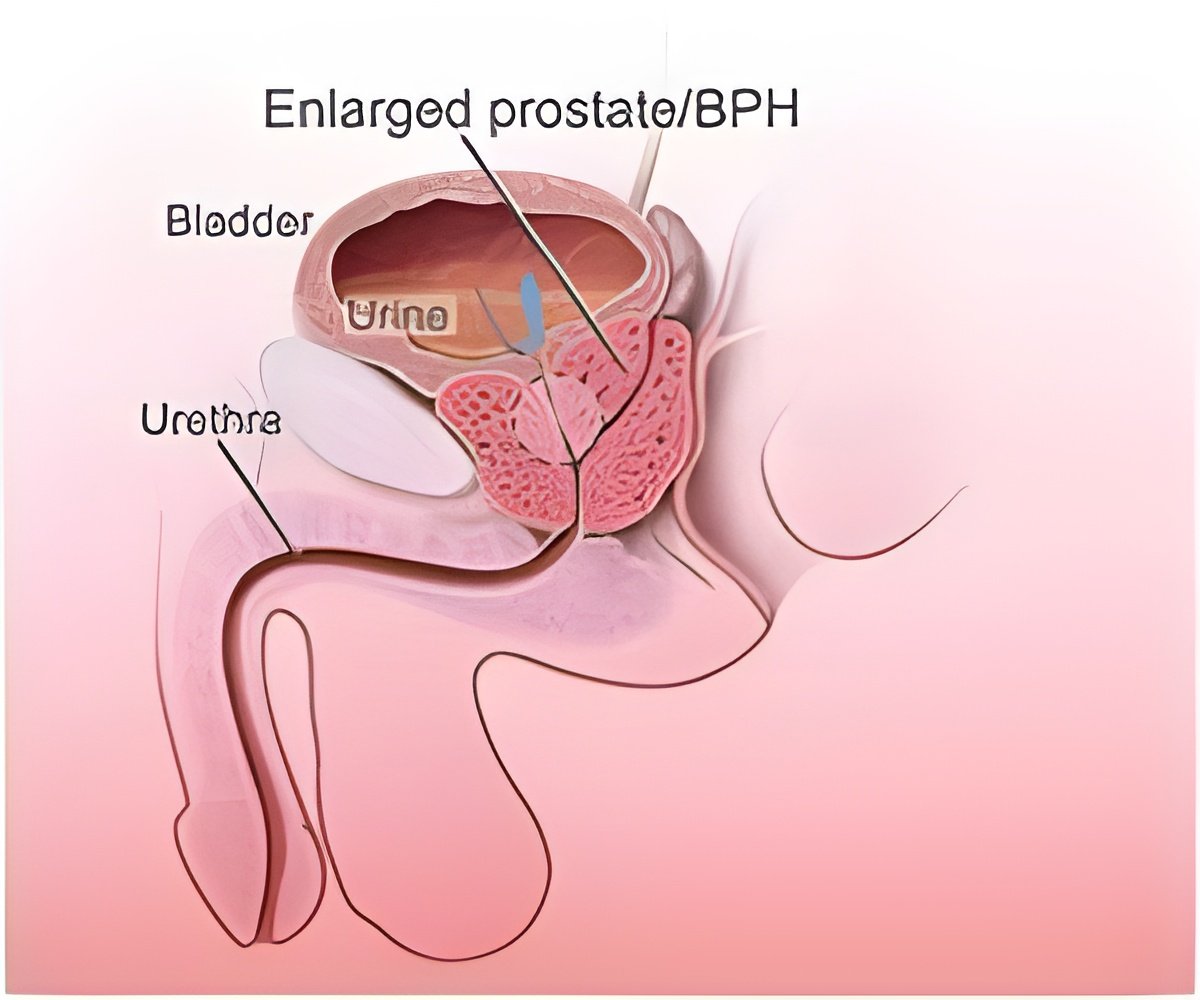Men with urinary retention because of a non-cancerous enlarged prostate are hospitalized and treated differently, reveals study published online by the urology journal BJUI.

"Acute urinary retention (AUR) is a severe complication of benign prostatic hyperplasia (BPH) characterised by a sudden and painful inability to urinate" explains lead author Professor John Fitzpatrick from Mater Misericordiae University Hospital and University College, Dublin, Ireland. "As well as being extremely distressing, and a major public health issue, it can also lead to an increased risk of ill health and even death.
"Our study shows that prescribing the patient with an Alpha-1 Blocker before providing further treatment without a catheter is the most successful route. It also demonstrates that prolonged catheterisation is association with increased ill health."
The study comprised 6,074 men with AUR, who were treated by 953 urologists from public, private and mixed health care practices over a four-year period. Of these, 2,618 were from France, 1,727 were from Asia (Korea, Pakistan, Philippines, Taiwan, Thailand and Vietnam), 883 were from Latin America (Colombia, Mexico, Venezuela), 755 from Algeria and 91 from the Middle East (Bahrain, Qatar, Kuwait and the United Arab Emirates).
Key findings of the study included:
- Most of the men (71%) had spontaneous AUR, a natural result of their enlarged prostate, while 29% had precipitated AUR following a trigger event. Causes included local or general anaesthesia (28.5%) and excessive alcohol intake (18%). Precipitated AUR was lowest in Algeria (12%) and highest in Latin America (44%), mainly due to excessive alcohol intake in the latter. Advertisement
- AUR predicted the presence of BPH in 44% of men. Hospitalisation for AUR varied between countries, ranging from 1.7% in Algeria to 100% in France. A urethral catheter was inserted in just under 90% of cases, usually followed by treatment without a catheter (TWOC) after a median of five days, averaging from three days in France to eight days in Algeria. TWOC was successful in 61% of cases.
- Most men (86%) received an Alpha-1 Blocker (mainly alfuzosin) before catheter removal and this led to consistently higher TWOC success rates, regardless of age and the type of AUR. Multivariate regression confirmed that prescribing an Alpha-1 Blocker before TWOC increased the success rate by 92%. Advertisement
- TWOC failure was most common if men were 70 years plus, had a prostate size of 50 g or higher, severe lower urinary tract symptoms, drained volume at catheterisation of 1000 mL or more and spontaneous AUR.
- Keeping patients catheterised for three days or more did not influence TWOC success, but it was associated with increased ill health and prolonged hospitalisation for adverse events.
- Just under half of the men who experienced TWOC failure (49%) were recatheterised and had BPH surgery. A further 43.5% tried another TWOC, with an overall success rate of 29.5%, ranging from 20% in Algeria to 44% in Asia.
- Just over 13% of men received prolonged catheterisation followed by programmed surgery, with the highest rates in France (18%) and Latin America (15%). Immediate surgery was less common at 7%, ranging from 0.5% in Algeria to 13% in Asia.
"However, it also highlights important differences between countries regarding hospitalisation rates, duration of catheterisation and management of TWOC outcome, mainly due to the lack of guidelines for AUR management.
"It also identifies a number of variables, including age and prostate size, that predict the risk of recurrent AUR and surgery after a successful TWOC. These could be used to identify patients that cannot be managed by medical therapy alone and should rapidly undergo surgery."
Source-Eurekalert











